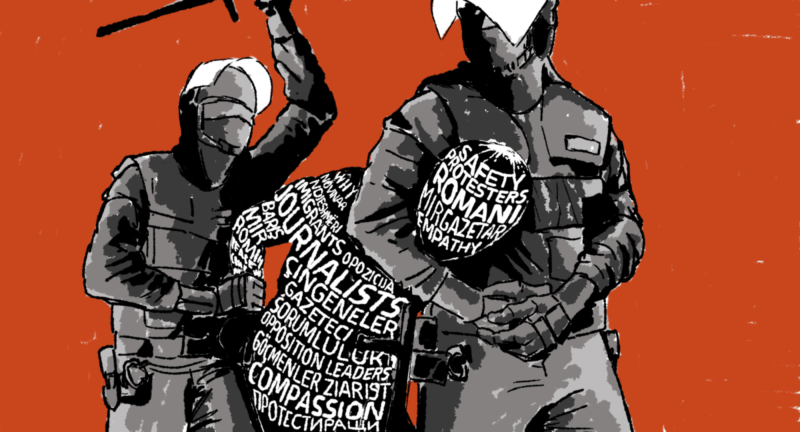
The case of the Indares family: allegations of the use of illegal and unjustified force by police officers



In December 2019, Mr. Indares and his wife and sons made a complaint (1, 2, 3) that police officers, during a police operation, had entered the roof of the family’s house without their permission. When Mr. Indares asked them if they had a document allowing them to be in his house, he claimed that police officers threw him and his sons onto the ground, swore at them, stamped on their backs and heads and tied their hands behind their backs. When Mr. Indare’s wife came up to see what was happening, the police officers threatened to throw her down the stairs. Mr. Indares and his sons were taken to the police station, where they were reportedly detained and denied access to a lawyer for a long period of time.
The police released a statement describing a different version of events, claiming that no violence was used during the operation and that father and sons were arrested for resisting police and for participating in the occupation of empty houses, such as the one next door to their house, which the operation was targeting.
Comments and statements given both before and after the trial (see 1, 2, 3, 4, 5, 6, 7, 8, 9, 10) make reference to: (i) that the defendants were victims of blind, brutal police brutality and were the scapegoats of an unsuccessful police operation; (ii) highlighting of the police force’s tendency to cover-up mistakes, and recurring incidences of police arbitrariness; (iii) that this case is not only a story of arbitrary police violence but includes a manner of conspiracy in which various institutions are implicated in covering for illegal police actions. These allegations give rise to a number of questions, and the doubts surrounding the truth of this case, and whether or not the actions of the police officers involved were effectively investigated, constitute a blow to the rule of law.
In a state governed by the rule of law, the action and functioning of the police authorities must be governed by certain principles, including the principle of legality, the principle of proportionality, the prohibition of the abuse of police power, and respect for and protection of human rights.
Therefore, although the police are entitled to use force to enforce the law, this does not mean that all use of preventive or repressive force by the police is lawful. On the contrary, the arbitrary use of force is a dangerous phenomenon for a democracy.
Moreover, in a state governed by the rule of law, the (even temporary) deprivation of a person’s freedom must be subject to strict conditions and guarantees. It has, however, often been reported that police forces have been known to make unjustified and arbitrary arrests.
In this particular case, the Indares family has complained that members of their family have been victims of unjustified police violence. However, their complaint was not pursued by the prosecutor. Instead, it was the complainants themselves who were charged with a series of offences. Their acquittal in November 2022 raises concerns and questions that have no place in a state governed by the rule of law. This is because it gives rise to doubts as to whether complaints of police violence and arbitrariness are adequately investigated without the complainants having to fear that they will instead find themselves in the position of the accused.
Bank Account number: 1100 0232 0016 560
IBAN: GR56 0140 1100 1100 0232 0016 560
BIC: CRBAGRAA
![]()
In a time where the very foundations of democracy are gradually being eroded by the rise of extreme nationalism, alt-right movements, the spread of disinformation and corporate capture, the efforts of organisations such as Vouliwatch are more relevant than ever.
We rely on the generosity of each and every one of you to continue with our efforts for more transparency and accounta
By financially supporting Vouliwatch you support our litigation strategy, our campaigns for transparency and accountability in the political system, the development of new civic tech tools, our research projects and last but not least our impartial and accurate